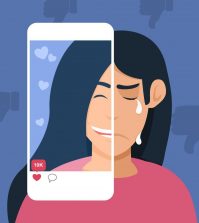- Finding Unshakable Power in a World That Wants to Pull Us ApartPosted 5 months ago
- What could a Donald Trump presidency mean for abortion rights?Posted 5 months ago
- Financial Empowerment: The Game-Changer for Women in Relationships and BeyondPosted 6 months ago
- Mental Health and Wellbeing Tips During and After PregnancyPosted 6 months ago
- Fall Renewal: Step outside your Comfort Zone & Experience Vibrant ChangePosted 6 months ago
- Women Entrepreneurs Need Support SystemsPosted 7 months ago
The psychology of free

There is a trend I have noticed emerging from social media for service businesses: we are giving too much information away for free. We lull ourselves into giving away services and expertise that we should be charging for. Before we know it, no one wants to pay for what we have to offer.
Does this sound familiar? You try to gain attention to your business by running a smart campaign where you offer a sampling of your service for free – maybe it’s a free consultation or download – and the people who take you up on your offer enjoy it, but never come back for the paid service. Why?
Maybe they have gone on to someone similar to you for another free sampling? Maybe they feel they got exactly what they needed from the initial free service. Maybe people have now come to expect to get something for nothing.
“Setting your price is the psychological equivalent of setting the value of YOU.”
There is psychology involved in this. You have heard the saying “you get what you pay for”? What do you think people perceive they are getting when it is free? I think most of us assume that something that costs more must be worth more – we attribute expertise we may not even know about to the person who is charging higher than the other. This is a psychological effect called prestige pricing, which points to a strong correlation between perceived product quality and price. The higher the price the more likely customers are to perceive it has higher quality compared to a lower-priced product. According to psychologist Dr. Peter Shallard, “Being expensive cultivates an aura of expert and elite status . . . setting your price is the psychological equivalent of setting the value of YOU. Your life, your work, that thing you’ve poured your energy and soul into.” He recommends you ask customers who don’t want to pay your set value what they are comparing your price to; you and they may find it is not apples to apples. When Shallard first asked this question he found out his life-changing services were being compared to piano lessons!
Doing a study on cognitive biases can be very enlightening for an entrepreneur. But with a tough economy people have been forced to settle for less and to become used to it. And maybe we have convinced ourselves we are worth less in the process. So if you are going to offer something for free or discounted, what should you do?
1. Always include the numerical value in your offer.
2. Always include the time value in your offer – i.e., the actual time the service will take (example: a thirty-minute consultation for $30). According to a study from the Stanford Graduate School of Business, marketing time sells better than marketing money because our relationship with time is much more personal than our relationship with money.
3. Make them pay a little. With even a small “buy in” made on the customer’s part, a psychological commitment is made. There will be a tendency to continue with the service because they are already invested and don’t want to feel they have lost that initial $5.00. This is known as loss aversion – studies suggest that losses are twice as powerful, psychologically, as gains.
4. Make them pay more than a little, but include the original price. According to research by cognitive and mathematical psychologist Amos Tversky and Psychologist Daniel Kahneman, who also were the pioneers in proving loss aversion, creating an anchoring bias has a very strong psychological effect (the anchor being the original price in this example). If consumers are unsure about the price they will look around for comparative prices – you provide them with the price to compare with.
5. Offer coupons. Your potential customers will feel they are getting a deal and you still get paid. Again, include monetary and time values in your offer.
6. Use social media posts that show you are well versed in your field – statistics, what famous people say about it/quotes, questions that get people thinking about their need for your service. Do NOT give away your service in bite-sized portions.
If you don’t want to believe the psychologists, why not listen to conventional wisdom? This is just one more example of my belief that SEO and Online Marketing rules are like dating, like your mother always said, “Why buy the cow when they can get the milk for free?”
Rebecca LeClaire draws from an education in Psychology and experience in Accounting and as an Internet Specialist. Her broad perspective of the inner workings of business and understanding how people perceive messages has helped her to build a successful international design and online marketing company. She helps start-ups and public figures create attractive and recognizable brands online, with the web presence of larger corporate competition. Rebecca can coach you to your success too! Find out more HERE.







